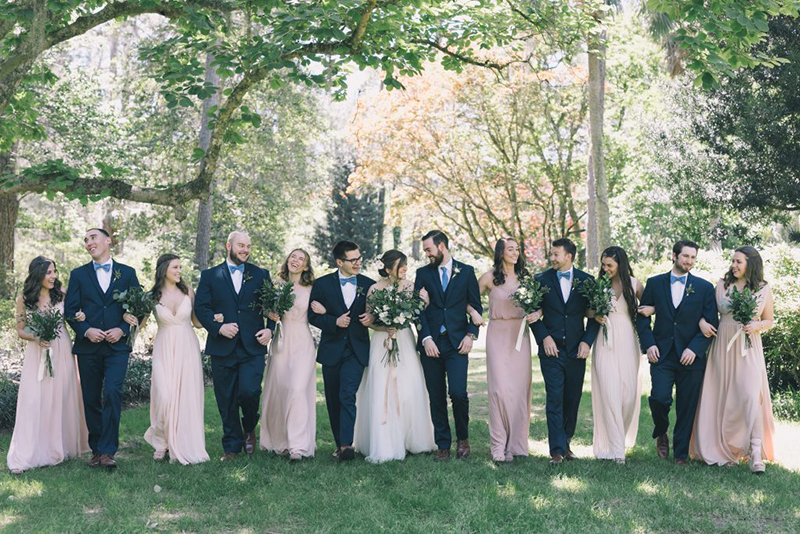Tips for Planning a Wedding on a Budget
By Rebecca Padgett
You’re recently engaged and couldn’t be more overjoyed. You’re practically glowing. That is until you begin to think about planning and paying for the grandest event in your life. It can seem overwhelming, but take a breath and remember that everyday couples make their ideal day happen one way or another without blowing their budget. We’ve compiled six tips for planning a wedding that is budget friendly.
1. Determine Your Budget
Before you under- or overestimate your budget, figure out exactly how much money you’re dealing with. Sit down with your partner and discuss honestly what you would ideally like to spend and how that amount will be distributed. If family members have offered to make any contributions, discuss with them their budget and total it in. Take into consideration how much you currently have in savings, your salaries, payments you must make outside of the wedding and ways you can cut costs.
2. Make a List of Priorities
With an estimated budget in place, you should make a list of all the services big and small that you plan to use. From there, prioritize them. Start at the top with the most expensive vendor, likely the venue and progress from there. Looking at this list, then prioritize what is important to you as a couple to spend money on. Maybe you are unwilling to waver on your favorite photographer, but decorations are less of a priority.
3. Create a Guest List
Creating a guest list early is essential because you will be able to give your potential vendors a number they can work off of to provide you with prices. Many aspects of a ceremony and reception are dependent upon the number of guests — food, beverages, rentals such as chairs and tables, guest gifts and more. While a band, DJ, photographer, videographer, planner, etc., all have set rates, other elements are completely dependent on the guests in attendance.
4. Decide on a Money Management System
You’ve established a budget, made your priority list, set a guest list and decided on your vendors — now it’s time to stick to your budget. The best way to do so is to have a plan in place. Whether you’re a spreadsheet wizard or prefer to handwrite in a journal, you should be keeping track of your spending. Keep all receipts, emails
5. Cost Cutting
Cost cutting doesn’t necessarily mean sacrificing. Instead, thinking of it as being savvy and creative with your spending. Consider recycled wedding ideas. There are many sites and local events that feature previously used wedding items for sale. For decor, take a few Saturdays and go thrift shopping or garage sale hopping as a couple or with your bridesmaids. Is your aunt a great baker? Maybe she would be willing to provide some desserts. There are a variety of ways to save a few bucks here and there.
6. Save Away
Making money habit changes in your current life can greatly impact the amount you can contribute to your wedding. If your engagement period allows it, an ample amount of money can be saved. Put away part of each check into a savings account, pay off your credit card or even just make changes on an everyday lifestyle level. Limit how many times a week you eat out, make coffee at home instead of a pricey latte on the go and get creative with your date nights — cook together, camp in your backyard and have game nights. These small changes can largely impact your dream day.




